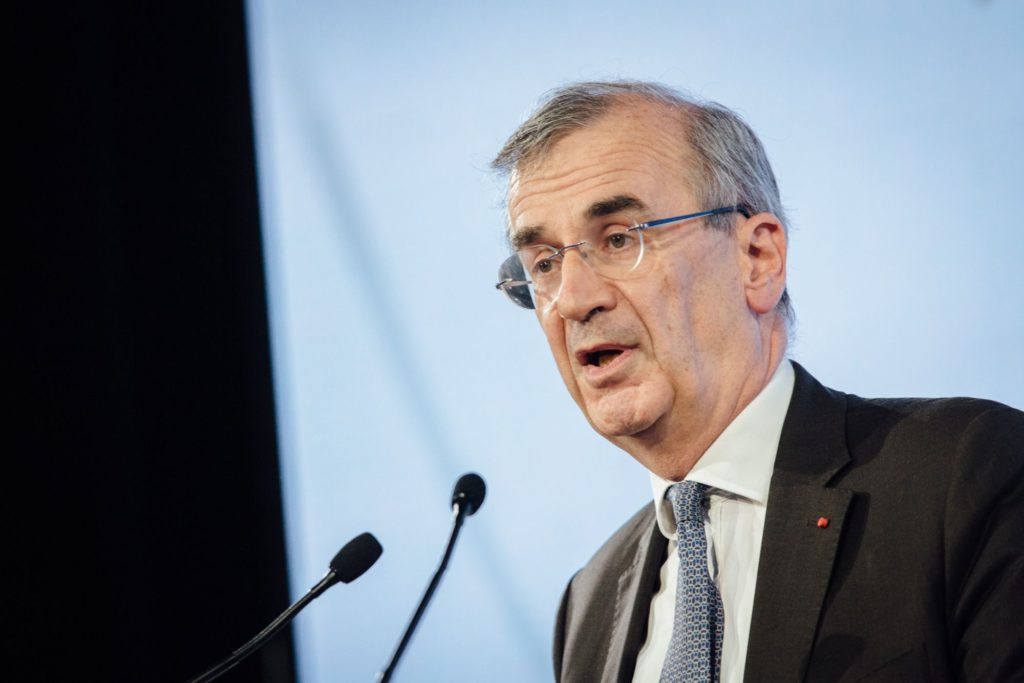(Bloomberg) — European Central Bank officials are amplifying calls for tighter regulation of crypto-currencies, likening the industry to a “Wild West” or “Middle Age” solution to payments.
An unchecked spread of crypto and stablecoins risks a return to periods when people traded with privately issued banknotes backed by questionable assets, French Governing Council member Francois Villeroy de Galhau said, calling the situation “a bad answer to a real challenge.”
“Unregulated crypto would mean regression and turning back to private fragmentation,” he told a Financial Times event Tuesday. “This is really the last thing we need in our world.”
The comments follow one of the ECB’s harshest assessments of the crypto world, delivered a day earlier by Villeroy’s colleague, Fabio Panetta. The Executive Board member said crypto-assets “are creating a new Wild West,” and compared its dynamics to the subprime mortgage market that triggered the 2008 global financial crisis.
While agreeing with the comparison, Villeroy also drew parallels to Europe’s Middle Ages.
“We had at the time very different assets and currencies with limited geographical constituencies,” he said. “This is not the way I see the process of the global payments system.”
About a hundred central banks are in various stages of exploring their own answers to crypto innovations after growing alarmed by the popularity of assets like Bitcoin that seek to bypass centralized payment systems.
The ECB has indicated it might launch a digital euro by the middle of this decade, potentially allowing consumers to use electronic money that’s a direct liability of the central bank, rather than that of commercial lenders or other payment-service providers.
Villeroy said central banks should innovate themselves and contribute to crypto regulation. Panetta endorsed a similar approach on Monday.
“The growth of crypto-asset markets reveals society’s growing demand for digital assets and instant payments,” he said. Still, “now is the time to ensure that crypto-assets are only used within clear, regulated boundaries and for purposes that add value to society.”
More stories like this are available on bloomberg.com
©2022 Bloomberg L.P.











